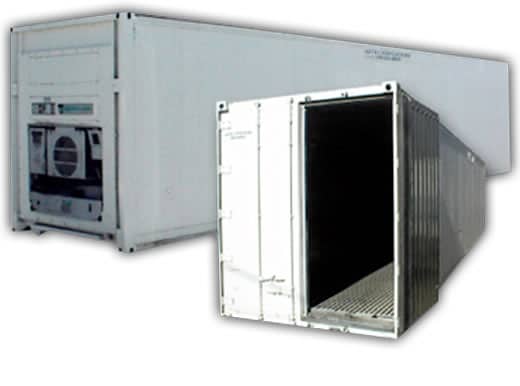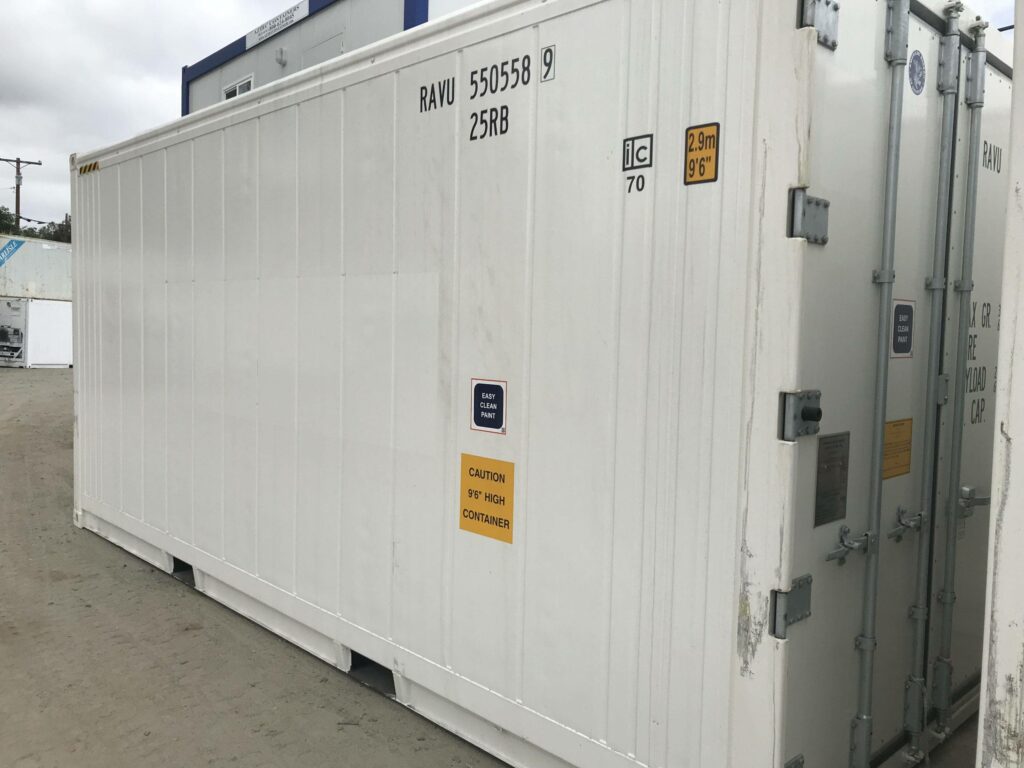Table of Contents
Introduction
In today’s global market, the demand for efficient transportation and storage solutions for perishable goods has skyrocketed. Whether you’re shipping fresh produce, seafood, or pharmaceuticals, cold storage containers are an essential tool.
With advancements in technology, reefer containers, and refrigerated shipping containers have become indispensable for industries requiring temperature-controlled logistics. Let’s explore how these solutions can revolutionize the way you manage perishable goods.
What Are Cold Storage Containers?

Cold storage containers, commonly referred to as reefer containers, are specialized shipping units designed to maintain specific temperature conditions. Unlike traditional 20-foot shipping containers or 40ft shipping containers, reefer containers are equipped with advanced refrigeration systems to ensure the optimal preservation of perishable items during transit or storage.
Key Features of Reefer Containers:
- Temperature Control: Reefer containers can maintain temperatures ranging from -25°C to +25°C, making them versatile for different goods.
- Durability: Built to withstand extreme conditions, these containers ensure safety and longevity.
- Sizes: They come in various sizes, including the standard 20 ft container cbm and 40 ft shipping container for sale, catering to diverse logistical needs.
A 20-foot container cbm typically measures about 33.2 cubic meters, making it ideal for smaller shipments requiring refrigeration. For larger-scale operations, a 40ft shipping container provides ample space for bulk storage.
Why Choose Reefer Containers for Your Business?
Preserving Quality of Perishable Goods
The primary advantage of using refrigerated containers is their ability to maintain product quality. From fresh vegetables and seafood to life-saving pharmaceuticals, the precise temperature control of a refrigerated shipping container ensures that products reach their destination in perfect condition.
- Refrigerated shipping reduces the risk of spoilage during long-distance transport.
- Reefer containers minimize waste, translating to significant cost savings for businesses.
Flexible Shipping Solutions
Whether you’re shipping goods domestically or internationally, reefer shipping containers offer unmatched flexibility. These containers can be customized to fit specific temperature and humidity requirements, providing businesses with tailored solutions.
- 20 feet container cbm options are perfect for compact shipments.
- Larger businesses often prefer 40 ft shipping containers for bulk storage and transport needs.
Eco-Friendly and Cost-Effective
Many modern reefer containers for sale come equipped with energy-efficient cooling systems, reducing environmental impact. Investing in a refrigerated container can also be a cost-effective solution for long-term storage needs, as they reduce dependency on external refrigeration systems.
Types of Cold Storage Containers
Standard Refrigerated Containers
The most common type, refrigerated containers, are available in sizes like the 20 ft container and 40ft shipping container. These are suitable for transporting a wide range of goods, from frozen foods to temperature-sensitive electronics.
High Cube Refrigerated Containers
For businesses requiring additional space, high cube shipping containers offer increased height without compromising on temperature control. These are especially popular for goods requiring more headroom.
Portable Cold Storage Units
These compact units are ideal for on-site refrigeration needs, allowing businesses to set up temporary storage facilities without investing in permanent infrastructure.
How to Choose the Right Cold Storage Container
Determine the Size You Need
Understanding the dimensions and capacity of containers is crucial. For instance:
- How many cbm in a 20ft container? A standard 20-foot container cbm is approximately 33.2 cubic meters, ideal for small shipments.
- A 40 ft shipping container for sale offers double the capacity, making it a better choice for larger-scale operations.
Evaluate Temperature Requirements
Different goods require different temperature ranges. For example:
- Frozen foods may need temperatures below -18°C, while fresh produce requires mild cooling.
- Modern reefer containers allow you to set precise temperature ranges for your goods.
Consider Mobility
If you need frequent movement, opt for containers like the 20-foot shipping container for easier handling. For static storage, larger units like the 40 ft container may be more suitable.
Conclusion
Cold storage containers, especially reefer containers, have revolutionized the way perishable goods are transported and stored. Whether you need a refrigerated shipping container for fresh produce or a durable 20 ft container cbm for pharmaceuticals, these innovative solutions provide unmatched reliability and efficiency. With options like reefer containers for sale, businesses can invest in long-term storage and logistics solutions tailored to their unique needs.
By understanding the features and benefits of refrigerated containers, you can make informed decisions to optimize your supply chain and ensure the safe delivery of perishable goods. Whether you choose a 20 feet container cbm for compact needs or a 40ft shipping container for larger operations, cold storage containers are the ultimate solution for maintaining quality and freshness.

